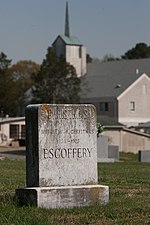Charles DeWitt Watts
Charles DeWitt Watts (September 21, 1917 – July 12, 2004) was an African-American surgeon and activist for the poor. Watts was the first surgeon of African-American ancestry in North Carolina. Earning his medical degree in 1943 from Howard University College, he was the first African-American board-certified surgeon to serve in North Carolina. After surgical training at Freedman's Hospital in Washington, D.C., in 1949, he moved to Durham, North Carolina, in 1950 and established a clinic to provide access to medical services for the poor. Breaking the social customs of racial obstacles, he advocated for certification of African-American medical students. He also became a member of many professional colleges including the National Academy of Science's Institute of Medicine and the American College of Surgeons. He served as chief of surgery at Durham's Lincoln Hospital and was later one of the key figures in converting it to the Lincoln Community Health Center, a low-priced clinic for the poor.
Excerpt from the Wikipedia article Charles DeWitt Watts (License: CC BY-SA 3.0, Authors).Charles DeWitt Watts
East Cornwallis Road, Durham
Geographical coordinates (GPS) Address Nearby Places Show on map
Geographical coordinates (GPS)
| Latitude | Longitude |
|---|---|
| N 35.959 ° | E -78.913 ° |
Address
East Cornwallis Road 3300
27707 Durham
North Carolina, United States
Open on Google Maps







